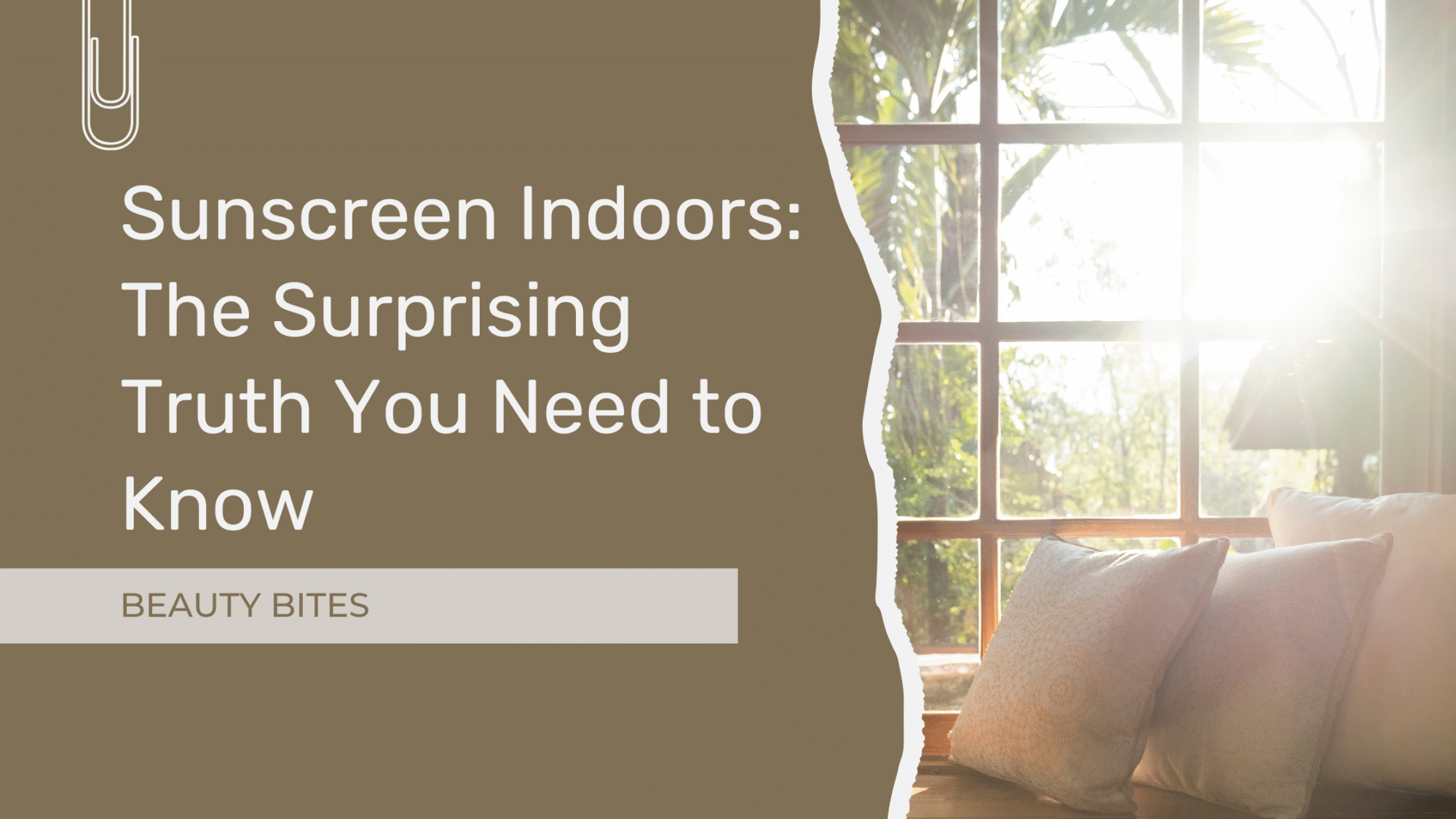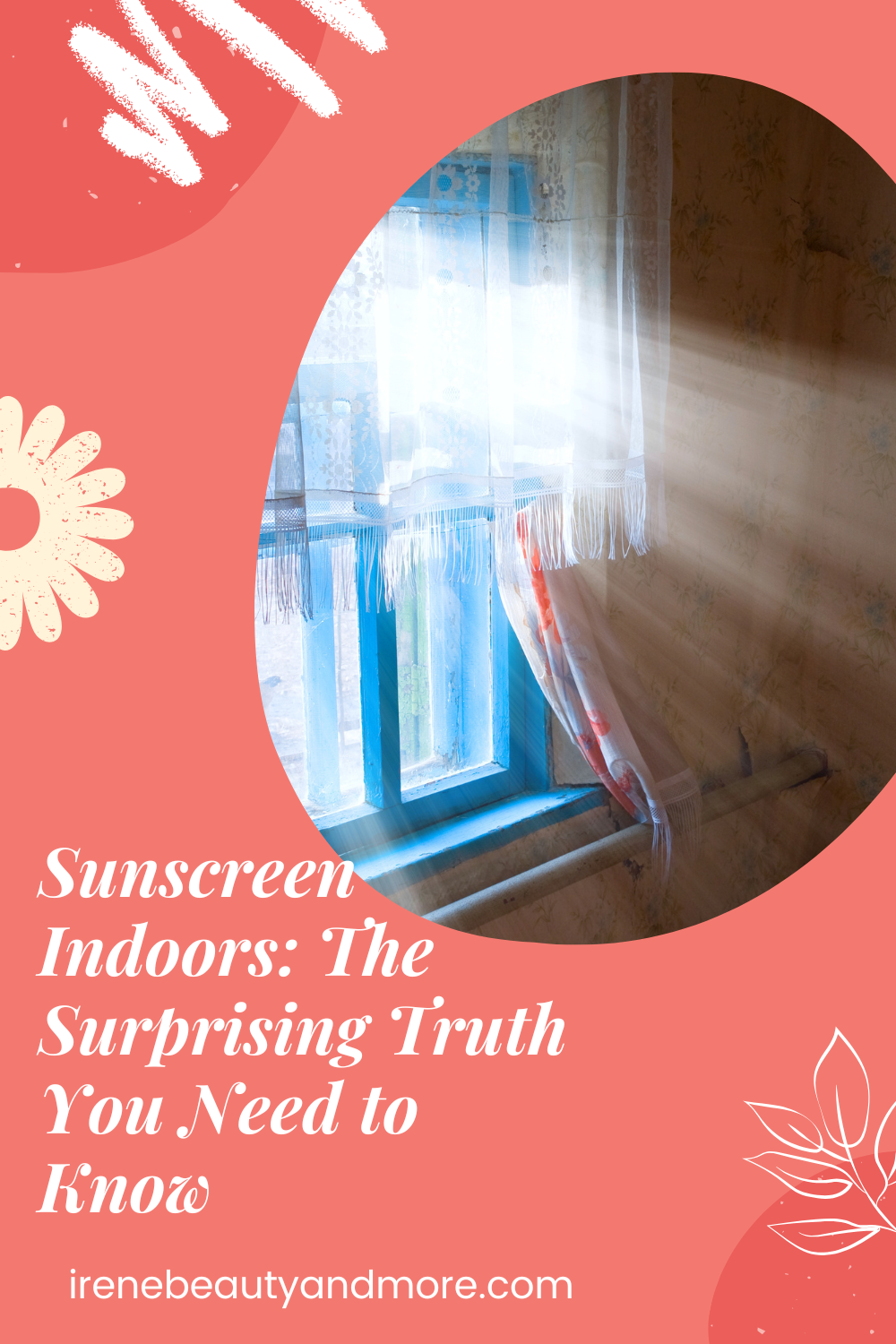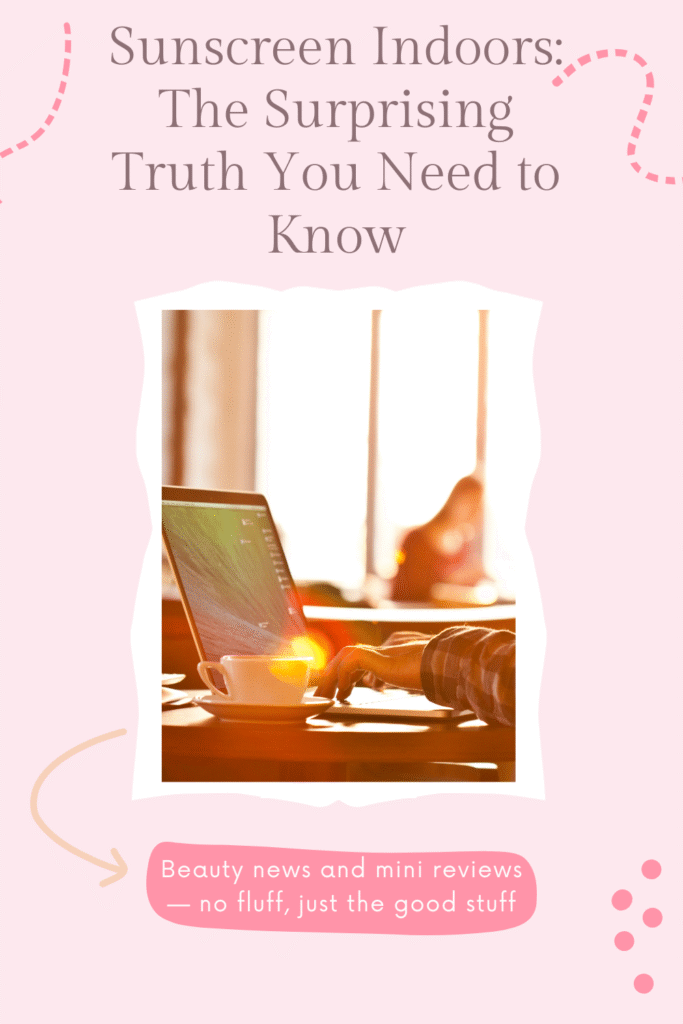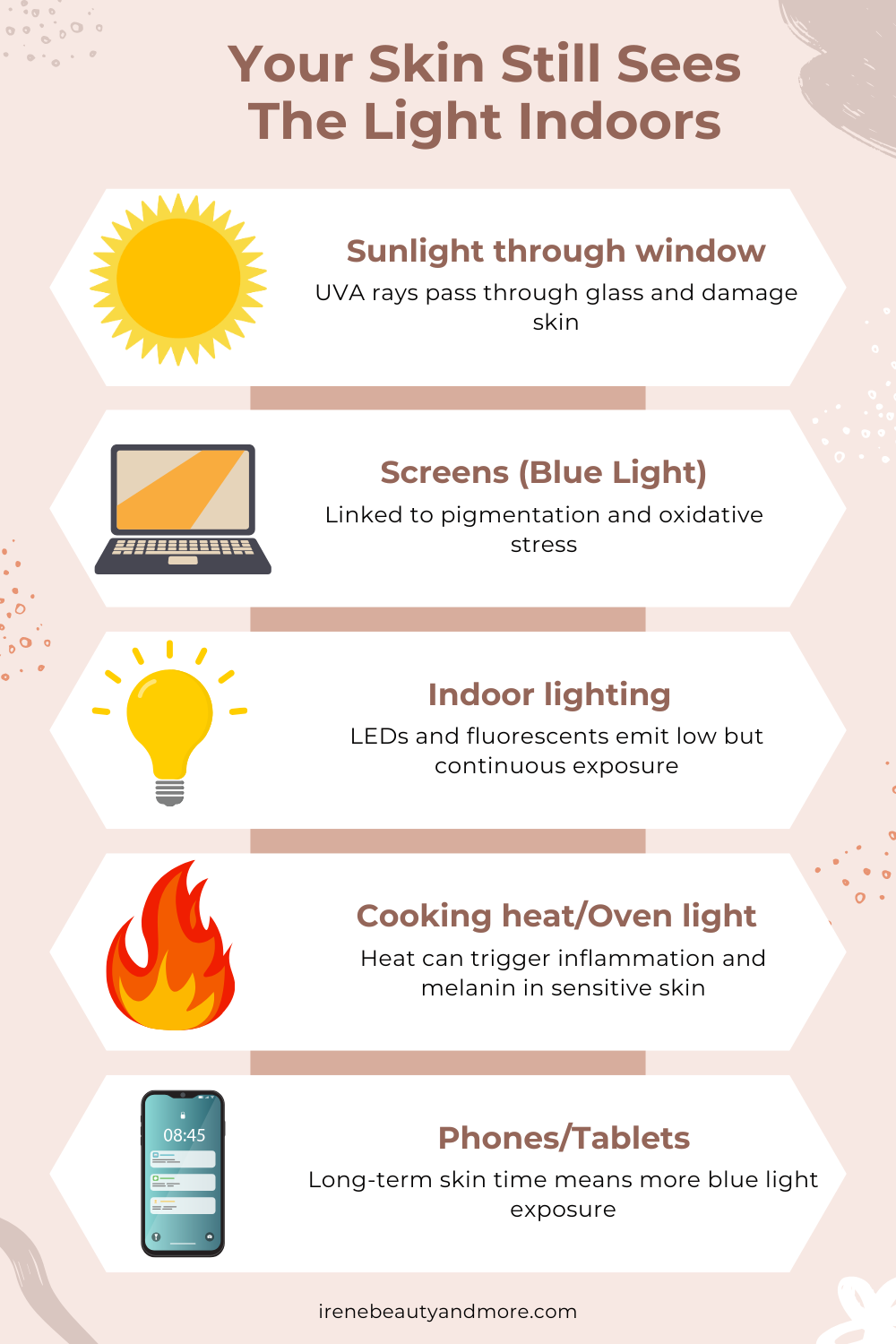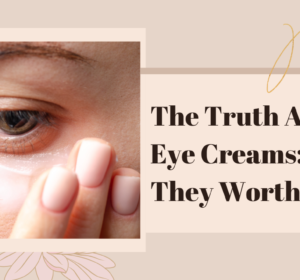When you think of sunscreen, your thought may be about applying it before heading outdoors, especially on a sunny day. However, experts and dermatologists stress the importance of wearing sunscreen indoors. The truth is, your skin is still exposed to harmful UV rays indoors. Protecting it with sunscreen is just as crucial as applying it when you’re out in the sun.
To understand why sunscreen is necessary indoors, it’s important to first understand the types of ultraviolet rays affecting your skin. There are two primary types: UVA and UVB rays. UVB rays cause sunburn, and they’re mostly blocked by glass. UVA rays are far more pervasive. UVA rays penetrate deeper into the skin and are the main cause of premature ageing, including wrinkles and dark spots. These rays can easily pass through windows and glass, meaning that if you spend time near a window or in a sunny room, you’re still at risk of UVA exposure.
Additionally, it’s important to note the increasing concern around blue light, emitted by our phones, computers, and other electronic devices. While blue light isn’t technically UV, it can still contribute to skin damage by causing pigmentation and accelerating the ageing process. Many sunscreens now have formulas to protect also from blue light. They offer an extra layer of defence for those spending hours in front of screens.

How UV Rays Affect Your Skin Indoors
The need for sunscreen indoors is due to cumulative sun exposure. Even minimal exposure to UV rays throughout the day can add up, causing long-term damage to the skin. If you spend time near a window with natural light, you’re likely exposing your skin to UVA rays for extended periods. Over time, this can lead to fine lines, age spots, and an increased risk of skin cancer. By wearing sunscreen indoors, you can significantly reduce the risk of these issues and protect your skin from further damage.

Choosing the Right Sunscreen Indoors
When selecting a sunscreen for indoor use, it’s important to choose one that provides broad-spectrum protection. It shields against both UVA and UVB rays. Dermatologists recommend opting for sunscreens with at least SPF 30. However, for more sensitive skin or for those particularly concerned about pigmentation and ageing, higher SPF formulations might be beneficial. Look for lightweight, non-greasy sunscreens that won’t leave your skin feeling heavy, especially since you’ll be wearing them all day indoors. Additionally, many sunscreens now have tint. They offer the added benefit of helping to reduce blue light damage. That makes them an excellent choice for those working from home or spending a long time in front of screens.

Making Sunscreen Indoors a Daily Habit
One of the easiest ways to incorporate sunscreen into your daily routine is by applying it as the final step in your skincare regimen. Whether you’re staying home or going out, applying sunscreen every day can help prevent sun damage. If you’re working near a window or exposed to direct light, remember to reapply sunscreen every two hours, especially if you’re sitting near a sunny spot for extended periods. You can use a spray sunscreen or a powder sunscreen for quick and easy reapplication throughout the day without disrupting your makeup.
The Bottom Line: Protect Your Skin Indoors
The importance of wearing sunscreen indoors cannot be overstated. It’s an essential step in protecting your skin from the harmful effects of UVA rays and blue light, both of which can lead to premature ageing and long-term skin damage. By making sunscreen a part of your daily routine, even when you’re indoors, you ensure your skin remains healthy, youthful, and protected for years to come.
Bear in mind that some of the links in this post are affiliate links and if you go through them to make a purchase I will earn a commission. Keep in mind that I link these companies and their products because of their quality and not because of the commission I receive from your purchases. The decision is yours, and whether or not you decide to buy something is completely up to you.
